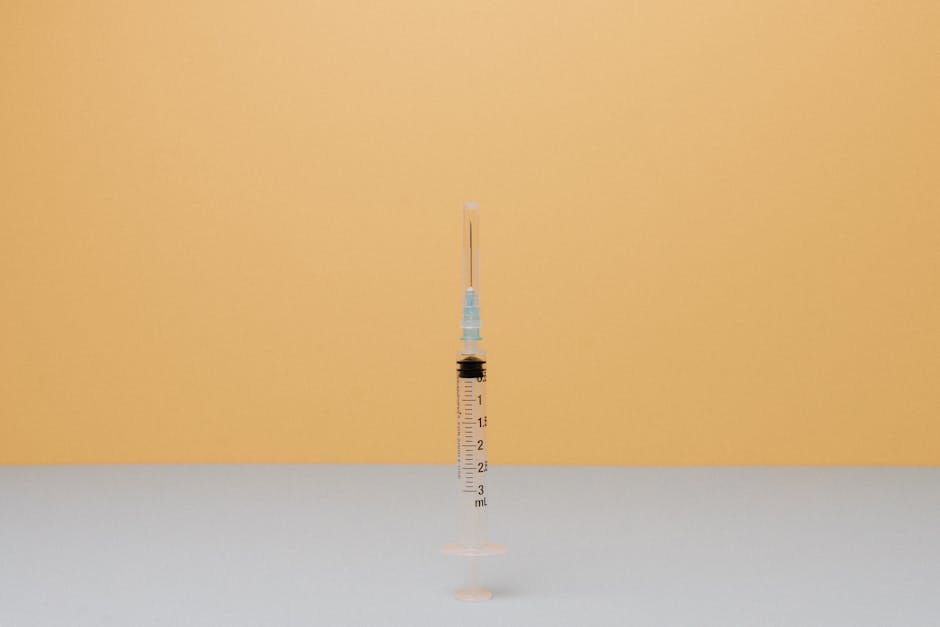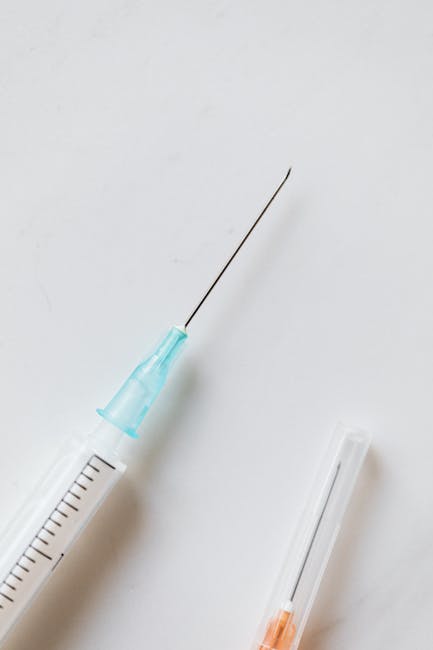Tri-Immune Injection: A Comprehensive Guide to Boosting Your Immunity
Understanding the Tri-Immune Injection
The concept of a “Tri-Immune Injection” is a broad term, often referring to a combination of immune-boosting therapies administered together. It’s crucial to understand that there isn’t a single, universally recognized injection with this specific name. Instead, the term encompasses various approaches designed to enhance the body’s natural defense mechanisms against infections and diseases. This can include a combination of vitamins, minerals, or even specific immunoglobulins tailored to the individual’s needs. The exact composition will vary greatly depending on the healthcare provider and the patient’s unique circumstances.

Common Components of Tri-Immune Injections
While the exact formulation varies, several components frequently appear in treatments marketed or understood as “Tri-Immune” injections. These often target different aspects of the immune system:
Vitamins and Minerals
- Vitamin C: A powerful antioxidant crucial for immune cell function and collagen production.
- Vitamin D: Plays a significant role in regulating immune responses and reducing inflammation.
- Zinc: Essential for the development and function of immune cells.
- Selenium: An antioxidant that supports immune function and protects against oxidative stress.
- Magnesium: Involved in various metabolic processes and may influence immune cell activity.
These vitamins and minerals are often included because deficiencies can weaken the immune system, making individuals more susceptible to infections. Supplementation can help address these deficiencies and improve overall immune function.
Immunoglobulins
Immunoglobulins (Ig), also known as antibodies, are proteins produced by the immune system to target and neutralize specific pathogens. Some “Tri-Immune” approaches might involve administering specific immunoglobulins, particularly in cases where the body’s own antibody production is compromised.

Other Potential Components
Depending on the provider’s approach and the individual’s needs, other components might be included, such as:
- Amino acids: Building blocks of proteins essential for immune cell function.
- Glutathione: A powerful antioxidant that supports detoxification and immune function.
- Other antioxidants: Such as alpha-lipoic acid or coenzyme Q10, further supporting cellular protection against damage.
Benefits and Potential Risks
The claimed benefits of Tri-Immune injections often include a strengthened immune response, reduced susceptibility to infections, and faster recovery from illnesses. However, it’s essential to approach these claims with a critical eye. While the individual components often possess established immune-supporting properties, the synergistic effects of combining them in an injection are not always fully understood or scientifically proven.
Potential Benefits
- Improved immune function: By addressing nutrient deficiencies and providing direct immune support.
- Reduced frequency and severity of infections: Through a strengthened immune system.
- Faster recovery time from illness: By enhancing the body’s ability to fight off infections.
- Improved overall well-being: Addressing nutrient deficiencies often leads to enhanced energy levels and improved mood.
Potential Risks and Side Effects
Like any medical intervention, Tri-Immune injections carry potential risks and side effects. These can include:
- Injection site reactions: Redness, swelling, pain, or itching at the injection site are common.
- Allergic reactions: To any of the components in the injection, ranging from mild to severe.
- Other side effects: Depending on the specific components, other side effects are possible, and should be discussed with a healthcare professional.
- Lack of scientific evidence: The effectiveness of many “Tri-Immune” combinations is not supported by rigorous scientific studies.
Finding a Qualified Healthcare Provider
If you’re considering a Tri-Immune injection, it’s crucial to consult with a qualified healthcare professional. They can assess your individual needs, evaluate potential risks, and determine if this type of treatment is appropriate for you. Avoid providers who make unrealistic promises or lack proper credentials.
Scientific Evidence and Research
It is essential to emphasize that while the individual components of a typical “Tri-Immune” injection have established benefits in supporting the immune system, the efficacy of their combined use in an injection format lacks robust scientific evidence. Many claims regarding the effectiveness of these injections are anecdotal and require further rigorous research to validate their purported benefits.
More research is needed to determine the optimal combination of components, dosage, and administration methods for maximizing the immune-boosting effects and minimizing potential risks. Studies evaluating the long-term effects and safety profile of such injections are also necessary.
Alternative Approaches to Boosting Immunity
Beyond injections, numerous other strategies can support immune function. These include:

- Healthy Diet: A balanced diet rich in fruits, vegetables, whole grains, and lean protein is crucial.
- Regular Exercise: Moderate physical activity strengthens the immune system.
- Sufficient Sleep: Adequate rest is essential for immune cell regeneration.
- Stress Management: Chronic stress can weaken the immune system.
- Hydration: Drinking plenty of water is vital for overall health and immune function.
Conclusion
The concept of a “Tri-Immune Injection” represents a broad approach to enhancing immunity through a combination of nutrients and potentially immunoglobulins. While some individual components offer demonstrable benefits, the overall effectiveness and long-term safety of such injections require further scientific investigation. It’s crucial to consult a qualified healthcare professional before considering any such treatment and to prioritize evidence-based strategies for bolstering immune health.
Always remember that this information is for educational purposes only and should not be considered medical advice. Consult with your doctor or other qualified healthcare provider for any questions you may have regarding a medical condition or treatment and before undertaking a new health care regimen.






